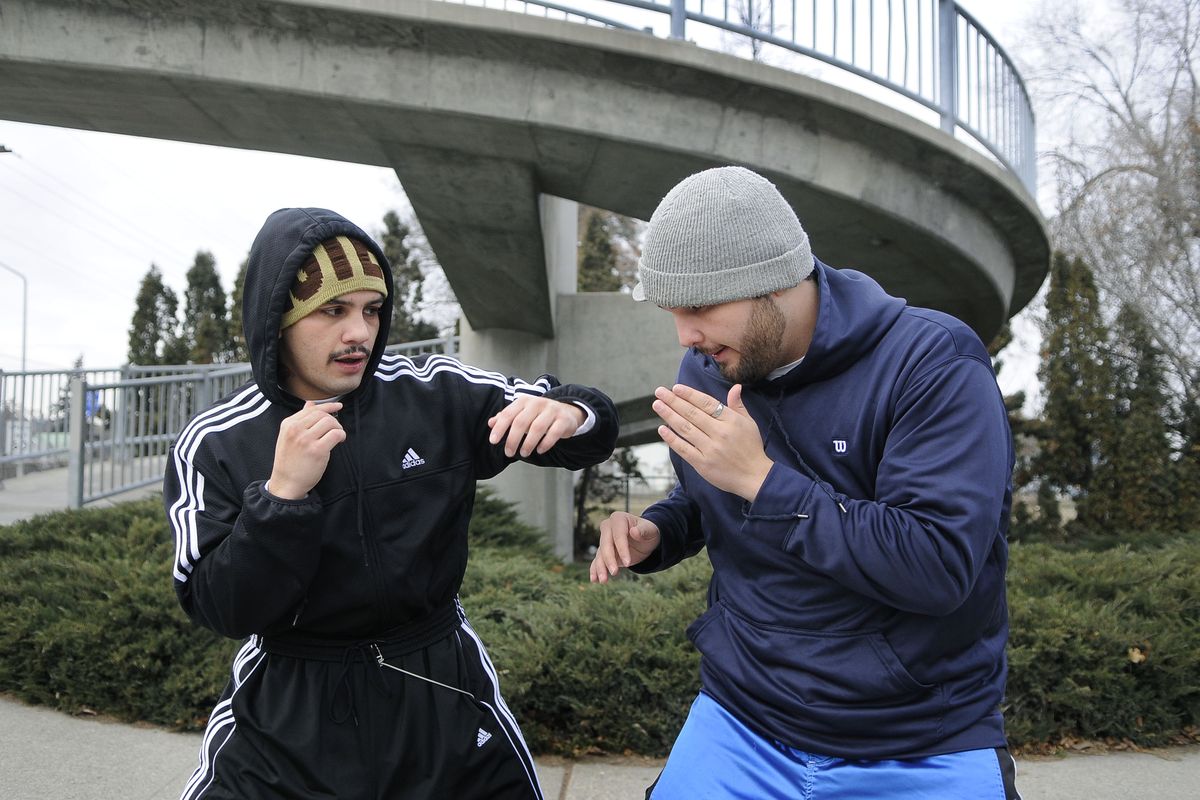Welliver draws crowd of worshippers in China

Chauncy Welliver knows three expressions in Chinese: nín hão (hello), xiè xiè (thank you) and something he called a “native word” for “you’re welcome,” which frankly sounded more Tongan over the phone. But from Chinese to boxer to sports writer, something was bound to get lost in translation.
“Maybe a thousand more fights here,” he said, “and I’ll be fluent.”
Chauncy in China. Talk about opening up the West.
The latest initiative happens today in Huili, a city of some 400,000 in Sichuan province. The Spokane heavyweight, barely two weeks removed from his latest bout, jumps back into the ring for a fight that’s less about the opponent or the latest alphabet-soup belt at stake but about the setting and his own place in it.
“There are really no Chinese heavyweights,” insisted Welliver’s manager, Roland Jankelson. “If he wins, he becomes the Chinese heavyweight.”
Maybe that’s a stretch – even in China, there will be a billion Chinese who couldn’t care less. But the stretch is what passes for currency in professional boxing, if not the gold standard.
Besides, if all Welliver and Jankelson have to go on is their own anecdotal evidence, then you can appreciate the point of view.
“The hospitality, the celebrity – it’s very, very different,” Jankelson said. “If it took one person assigned to us to get something done, they have 10 people doing it. Chauncy goes to the track to work out and he’s surrounded by 100 or 200 people wanting autographs.”
Echoed Welliver, “Kids running after us down the street. To walk a block takes forever.”
And the reason for this is … who knows? This is a government-backed production, and in remote Huili perhaps the equivalent of the Olympics coming to town. Or the circus, with Welliver – ninth in the latest World Boxing Council heavyweight rankings – as the dancing bear.
Team Welliver has been on site since Thursday, after a journey which required plane hops from Seattle to Tokyo to Chengdu to Xichang, capped by a two-hour drive south. As an attraction and curiosity, Welliver and his seconds have received Klitschko treatment.
Still, there are some reminders that this is, well, boxing.
Just as in the states, a fight has to be for a belt, even if it’s from Casual Male. In this case it’s the WBC’s Asian Boxing Council championship. As near as can be verified, this bauble last belonged to a Russian named Denis Bakhtov, who won it in 2008 and never lost it, though here it is up for grabs again.
The opponent was to be a New Zealander named Richard Tutaki – not a household name to you but certainly to Welliver, who has already beaten him twice. That Tataki’s record is a woeful 19-21-1 didn’t seem to bother the WBC, but the fact that he couldn’t get a visa in time to reach Huili made the promoter nervous.
So, in a grand boxing tradition, a replacement was found days before the fight.
The new guy is Lawrence Tauasa, a Samoan who also fights out of New Zealand. His credentials seem better – his record is 31-8-1, and back in 2009 he was one of the hopefuls who appeared on season four of “The Contender,” which filled a programming niche for NBC and Versus. Alas, Tauasa got smoked in his first fight, but at least it was to the eventual winner.
But Tauasa has fought exactly once in the last 20 months, a TKO loss. Welliver, by contrast, has had 11 outings in that time, various defenses of the other two regional belts he owns, including a stoppage on June 11 of Byron Polley in Kansas City, Kansas. Piggybacking another bout this quickly seems a little risky.
“But I got out of the last one unscathed,” Welliver said. “I didn’t take any damage – I did just good enough in that fight not to get hit. So we’re in good shape and we’ve kept up the running and we’re going to need it. The altitude here is high (5,866 feet) and the humidity makes New Orleans seem like Arizona.”
The time is coming when Welliver will have to test himself against better credentialed fighters; his investment, and that of Jankelson and trainer Joe Hipp, will demand it. But this is also about making a living, and that requires marketing – and hungry markets.
“This could be a chance,” said Jankelson, who has hinted at another important fight in China in the fall, “for Chauncy to be a big fish in a very big pond.”
By then, maybe someone will have taught him to say “Hillyard Hammer” in Chinese.